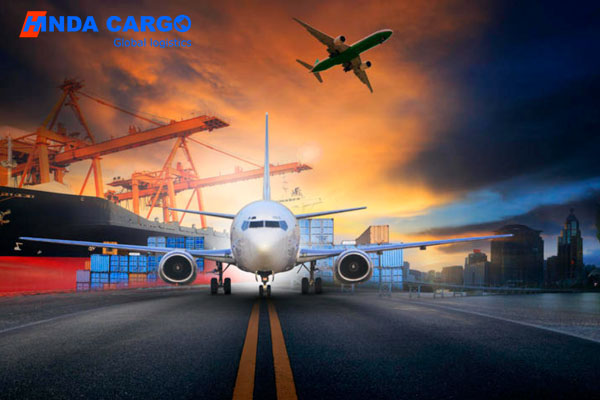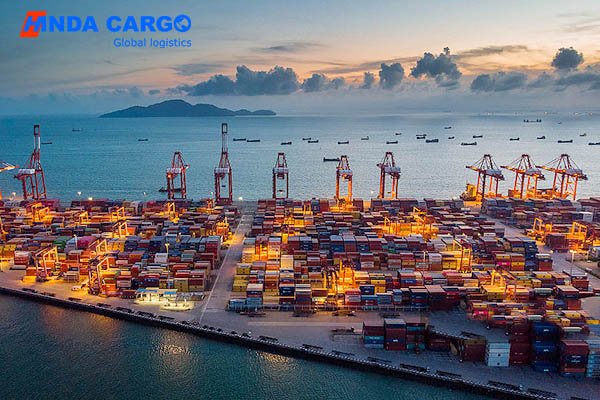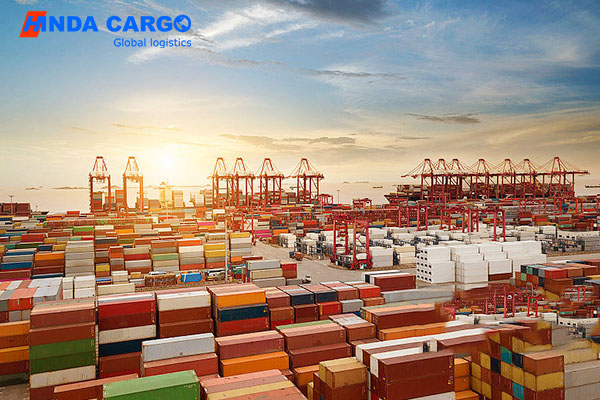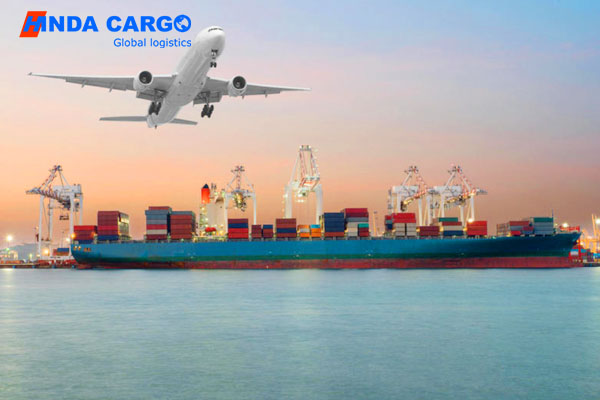Can I ship without a freight forwarder?
Freight forwarders have always played an important role in international trade and logistics. Whether it is a small or medium-sized enterprise or a large multinational company, freight forwarders provide great convenience for import and export business. However, some enterprises or individuals hope to save costs by operating independently and avoid relying on third-party freight forwarders.
So, is it possible to ship without a freight forwarder? Is independent shipment feasible? What challenges and risks will this option bring? This article will explore this in depth and comprehensively analyze the feasibility of independent shipment from the aspects of law, process, technology and practice.

What is the role of a freight forwarder?
Before answering whether it is possible to ship without a freight forwarder, we must first understand the core role of freight forwarders in international logistics. Freight forwarders are companies that specialize in providing intermediary services between shippers and carriers, mainly responsible for organizing, coordinating and managing the transportation process of goods. The following are the core services provided by freight forwarders:
Transportation Arrangement
Freight forwarders are responsible for helping customers choose the most suitable mode of transportation, such as sea, air or land transportation, and arranging relevant flights or ship dates. They will also select suitable carriers according to the type, volume, weight, etc. of the goods to ensure that the goods can arrive at the destination on time and according to quality.
Document Processing
International logistics involves complex document processes, including commercial invoices, packing lists, bills of lading, certificates of origin, customs declarations, etc. Freight forwarders usually help shippers process these documents to ensure compliance with the laws and regulations of the exporting and importing countries.
Customs clearance
Freight forwarders usually maintain good relations with customs, inspection and quarantine departments, etc., to assist in the smooth customs clearance of goods in the exporting and importing countries. They are familiar with the customs policies of various countries and can quickly process the documents and taxes required by customs to avoid cargo delays or fines due to incomplete or incorrect documents.
Insurance and risk management
Freight forwarders can also provide insurance services for goods to help shippers avoid potential risks during transportation, such as damage, loss, delays, etc.
Logistics network
Freight forwarders usually have a wide range of international logistics networks and can provide a variety of transportation and distribution solutions to ensure the best and lowest cost transportation path for goods from the place of departure to the destination.
These services not only provide convenience for shippers, but also save a lot of time and cost. Therefore, the importance of freight forwarders in international logistics cannot be ignored.

Can I ship without a freight forwarder?
Legally and technically, shippers can choose to ship goods independently without using a freight forwarder. That is, companies or individuals can be responsible for all aspects of the goods, such as transportation arrangements, document processing, customs clearance, etc. However, this does not mean that self-shipping is a simple task. Specifically, the following factors need to be carefully considered:
The complexity of international logistics
International cargo transportation is not just about transporting goods from point A to point B, but a complex process involving multiple links and stakeholders. In addition to basic transportation arrangements, shippers also need to face the following complex tasks:
● Route selection and ship booking: Freight forwarders usually use their rich experience and resources to find the best routes and transportation plans for customers. Without an agent, shippers need to contact various carriers on their own to compare prices, shipping schedules and services, which takes a lot of time and energy.
● Document preparation and customs declaration: Each country has different requirements for import and export goods. Improper preparation of documents may lead to customs clearance failure or cargo detention. In the absence of a freight forwarder, shippers need to have a very detailed understanding of the import and export regulations of various countries, prepare all necessary documents, and ensure the accuracy of the documents.
● Laws and regulations of the destination country: In addition to the requirements of the exporting country, the customs regulations of the importing country must also be fully complied with. Without the help of an agent, the shipper needs to research the import policies of the destination country on their own, including tariffs, import licenses, inspection and quarantine requirements, etc.
Challenges of customs clearance
Customs clearance is one of the most critical links in international logistics. If the customs clearance documents are incomplete, the declaration is inaccurate or does not comply with regulations, the goods may be detained, fined or even returned. Freight forwarders are experienced and can usually handle these problems quickly to ensure smooth customs clearance of goods. Shippers who ship independently need to face these challenges directly.
In many countries, customs procedures are complex and professional, requiring the submission of numerous documents and strict details. Customs clearance involves not only detailed declaration of goods, but also specific documents such as certificates of origin, import licenses, and cargo composition test reports. The professionalism of these procedures means that self-clearance is not easy. If the documents are wrong, the goods may be delayed for days or even weeks, resulting in high port and storage costs for the company.
Risk Management in Transportation
International transportation is full of risks, including cargo damage, loss, delays, etc. Freight forwarders are usually able to provide insurance services to customers to help shippers avoid these risks. In the case of self-shipping, shippers need to purchase cargo transportation insurance on their own and deal with any potential accidents during transportation alone.
In addition, if problems arise during transportation, such as delayed shipping, damaged or lost cargo, freight forwarders usually help shippers communicate with carriers to recover losses. Self-shipping shippers need to negotiate with carriers on their own, which is not only time-consuming, but also requires certain negotiation skills and legal knowledge.
Cost Control
Although self-shipping may save the service fees of freight forwarders, it does not mean that the total cost will be reduced. Shippers need to deal with multiple carriers, ports, warehousing and customs clearance agencies on their own, which may increase management and coordination costs.
For example, freight forwarders can usually obtain preferential freight rates through long-term cooperation with multiple carriers, while self-shipping shippers may not be able to obtain the same price discounts. In addition, due to lack of professional experience, autonomous operation may lead to misoperation or delays, increasing additional costs such as demurrage fees and customs clearance fines.

What are the legal and compliance requirements for autonomous shipments?
When choosing autonomous shipments, shippers must ensure compliance with the laws and compliance requirements of various countries. Especially in international logistics, many countries have strict import and export laws and regulations, and any violations will lead to serious consequences.
Legal requirements of exporting countries
Each country has different requirements for exporting goods. In China, companies or individuals need to have import and export rights to legally engage in international trade. In addition, China's foreign exchange management regulations and goods trade management regulations must be complied with. For example, certain specific products (such as high-tech products, military equipment, etc.) require export licenses and cannot be exported freely.
In addition, exporters need to truthfully declare the type, value and quantity of goods, provide accurate commercial invoices, packing lists and bills of lading and other documents, and pay relevant taxes and fees. If the exporter fails to provide documents that meet the requirements or makes an error in the declaration, it may face fines, cargo seizure or other legal liabilities.
Legal requirements of importing countries
The importing country has strict regulations on imported goods, and importers must ensure that the goods comply with the laws and standards of the country. For example, the United States has very strict regulations on the import of food, medicine, consumer goods, etc., and importers must provide relevant test reports, certificates of conformity, and import licenses, etc.
In addition, importers need to understand and comply with the country's tariff policy, accurately declare the value of goods, and pay import tariffs as required. Any misdeclaration or attempt to evade tariffs will result in serious legal consequences, including fines, confiscation of goods, and even criminal penalties.
Intellectual property and product compliance
In international trade, intellectual property and product compliance issues are also important challenges that shippers must face. Many countries attach great importance to the intellectual property protection of imported goods, and shippers must ensure that the goods do not infringe on the intellectual property rights of others. In addition, imported goods must meet the product safety standards of the destination country, such as the EU's CE certification and the US's FCC certification. If the goods fail to meet these standards, they will not be able to pass customs clearance and may even be destroyed.

Feasibility assessment: advantages and disadvantages of autonomous shipments
After the above analysis, although autonomous shipments are feasible in theory, they face many challenges in practice. Shippers need to weigh these pros and cons and make wise decisions.
Advantages
● Save on agency fees: Self-delivery can save on freight forwarding service fees, which can be a considerable cost saving, especially for large companies that ship frequently.
● Higher control: Self-delivery gives shippers more control over the transportation process and can choose details such as carriers, routes and shipping schedules.
Disadvantages
● High complexity and professional requirements: International cargo transportation involves multiple links and cumbersome procedures, and self-delivery requires very high professional ability and experience of shippers.
● Higher risk: Due to the lack of support from agents, shippers need to solve problems on their own when they encounter them, which increases operational risks and time costs.
● Potential additional costs: Although agency fees are saved, the final cost may not be lower than through agents due to possible misoperation, delays, fines and other problems caused by self-delivery.




